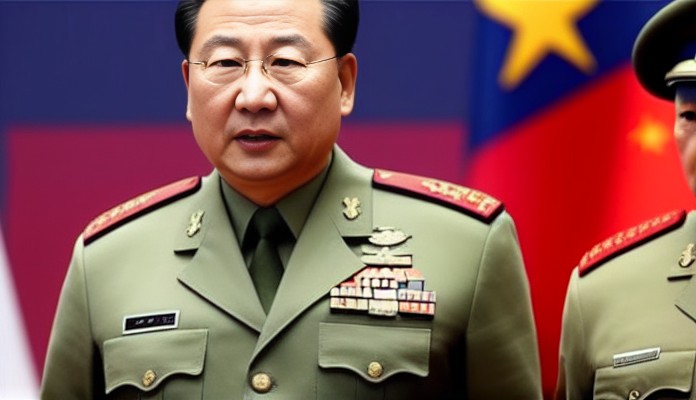China appoints new defense minister after sacking predecessor.
Politics
 China Appoints New Defense Minister After Sacking Predecessor, Representing Modernization Efforts
China Appoints New Defense Minister After Sacking Predecessor, Representing Modernization Efforts
As the political landscape continues to evolve, China has made significant moves to ensure its national security. Recently, the Chinese government appointed a new defense minister, replacing the previous incumbent who had been in office for nearly two years. The appointment of a new defense minister comes at a time when tensions between China and several of its neighbors have been escalating, particularly with Japan and South Korea.
The outgoing defense minister, General Zhang Shaopeng, had been a prominent figure in the Chinese military since 1986. Under his leadership, China's military capabilities have been significantly enhanced, including the development of advanced aircraft carriers, submarines, and other cutting-edge technology. However, some in the Chinese military and government have criticized his policies, particularly regarding the country's expanding military build-up in the South China Sea and its growing conflicts with neighboring countries.
With the appointment of a new defense minister, the Chinese government has taken steps to address concerns raised by critics of the previous administration. The new defense minister, General Xu Qiliang, will be overseeing the country's armed forces and will be responsible for formulating and implementing the country's defense strategy.
Analysts say that General Xu Qiliang brings a fresh perspective to the role, having served as a strategic planner and chief of staff during his previous stint with the People's Liberation Army. He is expected to work closely with President Xi Jinping to ensure that the country's defense plans are aligned with the government's overall foreign policy goals.
The appointment of a new defense minister represents a significant shift in the Chinese government's approach to defense, signaling a willingness to listen to feedback from military leaders and civilian officials. It also underscores the government's commitment to reform and modernization, particularly in areas where it has faced criticism from international partners and public opinion.
In conclusion, the appointment of a new defense minister in China represents a positive step towards modernization and national security. While the political landscape continues to evolve, the Chinese government has demonstrated its commitment to maintaining peace and stability in the region while also addressing the challenges posed by increasingly aggressive neighbors.
Personally, I believe that this move by the Chinese government is a good sign for the future of their relations with other nations, particularly those who share their concerns about the military build-up in the South China Sea. However, it is important to note that military tensions between China and its neighbors continue to be a concern, and any action taken by the Chinese government will need to be carefully considered and evaluated in light of these dynamics.






